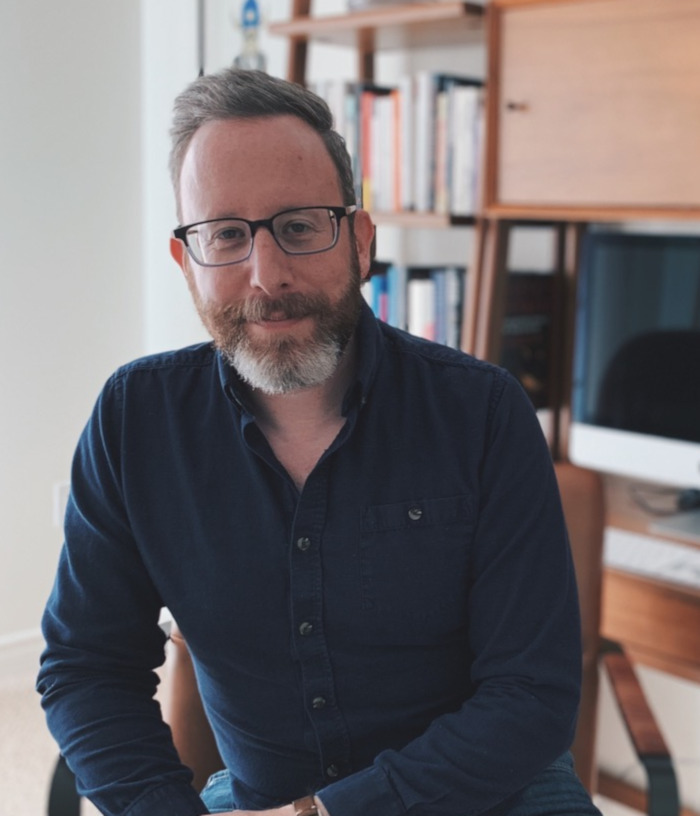Lakehead professor publishes new theory on the evolution of extraordinary self-sacrifice

February 14, 2022 – Orillia, Ont.
A Lakehead University professor has discovered that individuals will go to extraordinary lengths to help or harm others.
Dr. DB Krupp, an Assistant Professor of Interdisciplinary Studies, suggests that this may help us understand the evolution of multicellular organisms and the complex social behaviours and weaponry of many species.
For example, amoebae are single-celled organisms that typically lead solitary lives but, in a few species, individuals will come together when they are starved and form a multicellular organism composed of a stalk and fruiting body.
The majority of the individual cells will make up the stalk and die, whereas the few that remain will make up the fruiting body, reproducing by sending out spores.
Likewise, ants, termites, and some wasps and bees also make great sacrifices, giving up their ability to reproduce entirely to find food for the colony, defend the nest from intruders, or even blow themselves up to spray predators with sticky, dangerous compounds that stop those predators in their tracks.
“It turns out individuals do this to help their genetic relatives, because they bear copies of the same genes,” said Dr. Krupp.
“The amoebae in the stalk give up their lives to help their relatives in the fruiting body, and insect workers give up their lives to help their relatives in the colony, such as the queen. In turn, the survivors reproduce, allowing the genes causing self-sacrifice to spread through the population.”
The existence of self-sacrifice in nature has captivated scientists for the better part of a century, who have found that organisms will pay costs to altruistically help their relatives or to spitefully harm non-relatives.
It was widely assumed that the costs that individuals pay must be smaller than those they altruistically give to or spitefully impose on their recipients. But, in a recent theoretical breakthrough published in Scientific Reports, Dr. Krupp and his collaborator, Dr. Wes Maciejewski from San José State University, argue that organisms can evolve to pay costs beyond these limits.
“We asked the question: is it possible for individuals to hurt themselves more than they help or harm recipients? The literature doesn’t really explore this problem.
“Implicitly it’s assumed that it can’t happen, but we show that it can—under certain circumstances,” Dr. Krupp said.
“One of the keys is that individuals must be neighbours with their relatives. This helps, because the cost of self-sacrifice translates into a benefit to one’s neighbours. So, by paying a cost, the individual is giving up food or other resources that its relatives can enjoy down the line.”
With this in place, the theory shows that extraordinary altruism evolves when the individual helps a relative who then travels farther away, to compete with non-relatives somewhere else.
Conversely, the theory also shows that extraordinary spite evolves when the individual harms a non-relative who stays put. As a result, the spiteful cost to the non-relative again translates into a benefit to the self-sacrificing individual’s relatives, because it leaves more resources for its related neighbours.
Dr. Krupp sums up the result with a simple rule: “Extraordinary self-sacrifice evolves when the individual’s neighbours are relatives and the recipient’s neighbours are not.”
You can read Dr. Krupp’s article here.
– 30 –
Media: For more information or interviews, please contact Brandon Walker, Media, Communications and Marketing Associate, at (807) 343-8110 ext. 8372 or mediarelations@lakeheadu.ca.
Lakehead University is a fully comprehensive university with approximately 9,700 full-time equivalent students and over 2,000 faculty and staff at two campuses in Orillia and Thunder Bay, Ontario. Lakehead has 10 faculties, including Business Administration, Education, Engineering, Graduate Studies, Health & Behavioural Sciences, Law, Natural Resources Management, the Northern Ontario School of Medicine, Science & Environmental Studies, and Social Sciences & Humanities. Lakehead University’s achievements have been recognized nationally and internationally, including being ranked, once again, among Canada’s Top 10 primarily undergraduate universities in Maclean’s 2021 University Rankings; as well as included in the top half of Times Higher Education's 2022 World Universities Rankings for the third consecutive year, and in the top 100 of 1,115 universities from around the world in THE's 2021 Impact Rankings (which assesses institutions against the United Nations’ 17 Sustainable Development Goals). Visit www.lakeheadu.ca.

